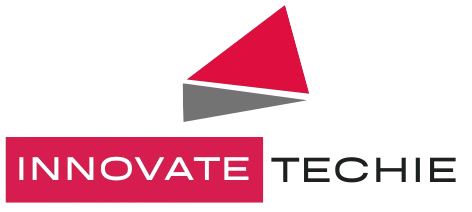In today’s digital age, ethical hacking for beginners is a field attracting many aspiring tech enthusiasts. Ethical hacking involves testing systems for vulnerabilities, helping organizations secure their networks. For beginners, learning ethical hacking opens doors to a rewarding career in cybersecurity. This guide will introduce the essential skills and tools you’ll need to start your ethical hacking for begginers journey.
1. Understanding Ethical Hacking Basics
Ethical hacking is often referred to as “white-hat hacking,” focusing on identifying and fixing vulnerabilities in networks, systems, and applications. Unlike malicious hacking, ethical hackers have permission to access systems, ensuring their actions remain lawful. A strong grasp of network security fundamentals and information systems is foundational to ethical hacking for begginers.
Key Concepts:
- Penetration Testing: Testing the security of a system by attempting to exploit vulnerabilities.
- Vulnerability Assessment: Scanning systems for potential weaknesses that attackers might exploit.
- Legal and Ethical Standards: Adhering to laws, regulations, and ethical guidelines to protect user data and maintain integrity.
2. Essential Skills for Ethical Hacking Beginners
To succeed in ethical hacking, developing a few core skills is critical:
- Networking Knowledge: Understanding network protocols like TCP/IP, DNS, and HTTP is essential. This helps ethical hackers navigate and assess networks for potential security breaches.
- Programming: Familiarity with languages like Python, JavaScript, and Bash can help you automate tasks, understand exploits, and even write your own scripts.
- Operating System Proficiency: Linux, especially Kali Linux (a popular ethical hacking OS), is a staple for ethical hackers. Windows is also essential, as many systems are built on it.
- Security Mindset: Ethical hackers must think like attackers to identify and exploit potential weaknesses, always with a goal of improving system security.
3. Top Tools for Ethical Hacking Beginners
Learning ethical hacking tools is a crucial step for beginners. These tools help identify vulnerabilities, test system defenses, and build essential skills. Here are some of the most valuable tools:
- Kali Linux: This Linux distribution is designed specifically for penetration testing, with hundreds of built-in tools like Nmap, Metasploit, and Wireshark.
- Nmap: Known as the “network mapper,” Nmap scans networks, revealing hosts, services, and operating systems. It’s invaluable for beginners looking to understand a network’s structure.
- Wireshark: A powerful tool for network protocol analysis, Wireshark captures and displays data packets in real-time, allowing ethical hackers to identify unusual or malicious activity.
- Metasploit: This framework allows ethical hackers to perform penetration testing, with a vast library of exploits and payloads. Beginners can start with basic tasks to build their skills.
- Burp Suite: Used for web application security testing, Burp Suite is crucial for identifying vulnerabilities in websites and applications.
4. Building Your Ethical Hacking Lab
Setting up an ethical hacking lab at home is a practical and safe way to practice. By creating virtual environments on your computer, you can safely explore vulnerabilities and test tools without risking damage to real networks.
How to Set Up a Lab:
- Virtual Machines (VMs): Use tools like VirtualBox or VMware to create isolated environments for testing.
- Kali Linux Installation: Install Kali Linux as your main testing OS within the VM. This setup allows you to test without impacting your main operating system.
- Vulnerable Web Apps: Platforms like DVWA (Damn Vulnerable Web App) and OWASP’s Juice Shop provide vulnerable applications for testing skills legally and safely.
5. Finding Ethical Hacking Resources and Communities
There’s a wealth of online resources for beginners learning ethical hacking. Here are a few recommendations:
- Online Courses: Websites like Udemy, Coursera, and Cybrary offer introductory courses on ethical hacking and cybersecurity. Many are free or affordable.
- Practice Platforms: TryHackMe and Hack The Box are interactive platforms where users can hone their skills by solving challenges in simulated environments.
- Forums and Communities: Platforms like Reddit, Stack Overflow, and specialized cybersecurity forums offer spaces to ask questions, share insights, and stay updated on new trends.
6. Ethics and Responsibility in Ethical Hacking
Becoming an ethical hacker means upholding strong ethical standards. Respect privacy, confidentiality, and laws surrounding cybersecurity. Unethical behavior or unauthorized hacking is illegal and can have serious consequences. As a beginner, remember that trust is foundational in ethical hacking for begginers, and maintaining a good reputation will open doors to opportunities.
Conclusion
Learning ethical hacking for beginners is an exciting journey filled with opportunities for personal and professional growth. With the right skills, tools, and ethical foundation, you can contribute to a safer digital world. Start small, practice consistently, and leverage the resources available to build a strong foundation in ethical hacking.


1 Comment
I’m extremely impressed together with your writing abilities and also with the layout
in your blog. Is this a paid theme or did you customize it yourself?
Anyway stay up the nice quality writing, it’s uncommon to see
a nice blog like this one these days. Blaze ai!